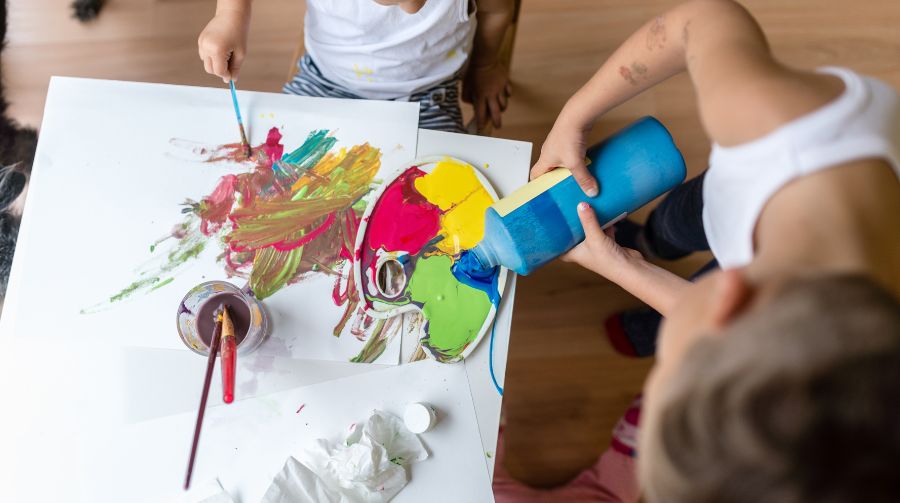Finger painting can be a great way for kids who are dyslexic to develop their creativity, improve their fine motor skills, and have fun.
For dyslexic children, traditional forms of art, such as drawing and coloring, can be frustrating and overwhelming. With finger painting, however, children have the freedom to express themselves without the pressure of being perfect. They can use their fingers to create unique shapes and textures, and the tactile sensation of painting with their hands can be extremely satisfying.
In addition to being a fun and relaxing activity, finger painting can also help dyslexic children improve their fine motor skills. As they use their hands to paint, they are strengthening the muscles in their fingers and hands, which can help with tasks such as writing, buttoning clothes, and tying shoelaces.
Finally, finger painting provides children with the opportunity to experiment and be creative. They can mix different colors to create new hues, and they can use their fingers to create different textures. This type of exploration and creativity can help children develop problem-solving skills and boost their self-esteem.

Recommended Activities
-
Color Mixing: Encourage your child to mix different colors of paint together to create new hues. This activity will help your child understand the concept of color mixing and will also help to develop their problem-solving skills.
-
Textured Painting: Give your child various materials such as sand, salt, or leaves to add texture to their paintings. This will not only make their paintings unique, but it will also help to stimulate their sense of touch and imagination.
-
Painting with Nature: Take your child on a nature walk and have them collect different items such as leaves, flowers, and twigs to use as paintbrushes. This activity will not only be fun, but it will also help to stimulate your child's imagination and creativity.
-
Abstract Art: Encourage your child to create abstract paintings without any specific subject matter in mind. This will give them the freedom to express themselves without the pressure of creating a recognizable image.
-
Collaborative Painting: Have your child work together with a friend or sibling to create a collaborative painting. This activity will help to improve their social skills and teamwork. Plus, it will be a fun and unique painting that they can treasure for years to come.
In conclusion, finger painting is a great activity for kids who are dyslexic. It provides them with an outlet for their creativity, helps improve their fine motor skills, and is a fun and relaxing activity. So, why not grab some paint and let your kids get their hands dirty!


